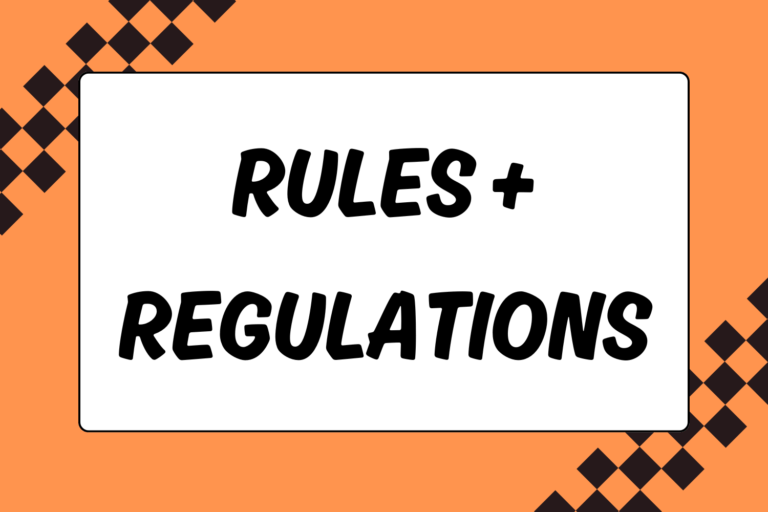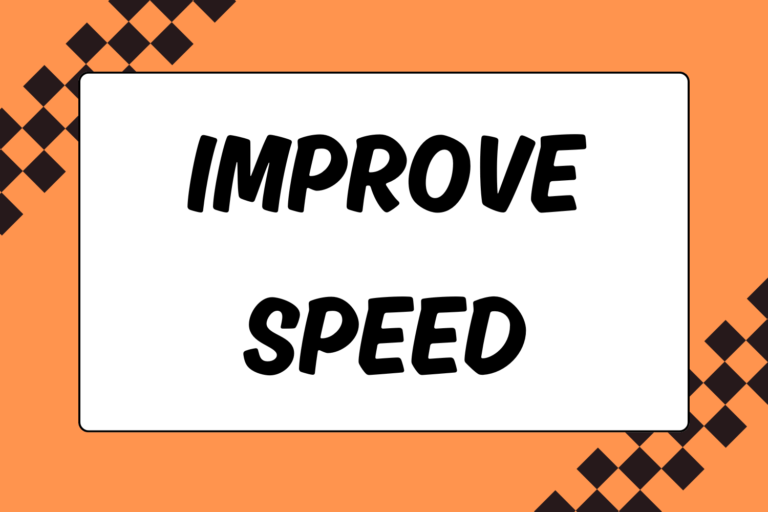You may have heard of the saying, “food is fuel.” What you put into your body ultimately determines how much energy your body will put out.
Every athlete swears by certain foods to give him the boost he needs. The world’s fastest human, Usain Bolt, claims chicken nuggets, Jamaican yams and porridge are his go-to pre-race snacks—but this doesn’t mean you should head to the drive-through before each competition. In reality, there is no specific diet or magic food that will automatically make you faster, stronger or quicker. The best thing to do is eat a variety of healthy, well-balanced meals.
Eating Smart
Here are some of the things you should know to help point you in the right direction:
- Do not skip meals.
- Eat four to six meals per day or three meals with snacks in between.
- Eat snacks. This is ok as long as they are healthy foods.
- Always eat breakfast.
- Eat a variety of foods: include various carbohydrates (oatmeal, whole grains, pasta, etc.), proteins (chicken, fish, lean beef), legumes, fruits, vegetables (broccoli, cauliflower, carrots, etc) in your diet.
- Eat lots of fruit and vegetables. The richer the color the better, as this is a sign that the food has a high content of vitamins.
- Avoid an excessive amount of highly processed foods (high in sugars, oils, fat and flour).
- Eat a sufficient amount of protein for your activity level and specific needs.
- Eat or drink something within 30 minutes after your workout. This will drastically reduce the time needed to recover.
- Drink at least eight glasses of water a day. Better yet, bring a bottle of water with you everywhere, especially to practice.
Eating right will provide a number of benefits, such as consistently better practice sessions (which in turn leads to consistently better races), quicker recovery from practices and races, and increading your body’s ability to prevent injury. You will both feel better, and perform better.
Your Daily Nutrition
With an event-specific sport like track & field, a distance runner will not necessarily eat like a sprinter and a jumper will not eat like a thrower. If you are a long distance runner, you may need to eat more carbohydrates to fuel muscle, while a sprinter may eat more lean meats to help build muscle tissue. The best thing to keep in mind when you eat throughout the day is to balance out your body’s individual needs based upon your activity or event.
In general, athletes need to include lean proteins (legumes, fish, chicken or beef), carbohydrates, vegetables, fruits and vitamins as part of a balanced, daily diet. Excluding an entire food group can put you at risk of injury, lack of energy, and poor performance.
Proteins and carbohydrates can be found in foods you eat every day. Protein helps repair and build muscle tissue, makes you feel full, and allows your hormones and enzymes to regulate your metabolism and daily body functions. Carbohydrates are converted to glucose in the body, which fuel muscles and give you the energy to both physically train and mentally deal with the stresses of competition. Eat carbohydrates that are whole grain products, this means it contains the entire grain kernel and the fiber, iron and B vitamins have not been removed.
The amount of protein and carbohydrates you need depends on the physical demands of your event and your specific demographic. There is no formula to predict the amount of food you should intake–variables like your size, gender, age, energy use and the amount and type of training you do impacts the proportion of protein to carbohydrates in the food you eat.
No matter what the event, make sure you focus on quality over quantity and eat a variety of different foods to give you enough fuel throughout the day. If you are not sure about your diet talk to a trusted sports nutritionist.
Foods High in Nutritional Value
High in Protein: Eggs, Milk, Cheese, Yogurt, Legumes, Lentils, Nuts and Fish Meat
High in Carbohydrates: Breakfast cereals, Whole wheat bread, Rice Pasta Muffins and Rice cakes
Eat Foods Rich in Vitamins
Eating foods rich in protein and carbohydrates is key, but it’s not the only important thing to consider when choosing what to eat. Heavy training, prolonged exercise and high-intensity workouts deplete vitamins and minerals in your body as well. It helps to think of filling your plate with all the colors to the rainbow:
- White: Cauliflower, bananas, onions, potatoes
- Green: Broccoli, lettuce, green apples, grapes
- Blue/Purple: Blueberries, plums, grapes, raisins
- Orange/Yellow: Carrots, apricots, peaches, oranges, cantaloupe, mangoes
- Red: Tomatoes, watermelon, cherries, berries, apples, peppers
Include fruits and vegetables in every meal to help replenish these levels and refuel your body after hard efforts.
Food for Throwers, Sprinters and Jumpers
Many power and sprint athletes believe that increasing their protein intake is the key factor in enhancing muscle mass and strength. This is not necessarily true. The best way to maintain and achieve this goal is by eating a mixed diet of proteins, carbs, and fruits and vegetables.
Think of carbohydrate-rich foods as the fuel that gives your body the energy it needs to workout. Protein-nutrient foods give your body something to build on. If your diet lacks either of these, you will not achieve the power and speed needed to improve on the track, the runway or in the ring. It is also important to stay away from foods and drinks that contain excess fat, sugar or alcohol.
If you are a thrower, your body mass or body fat may be higher than other athletes and vary with each individual. The goal is to be at your most functional, high performance body weight to achieve a power to weight ratio. If you need to reduce your body fat levels, do so reducing simple carbohydrates, while still maintaining a nutrient-rich diet.
Some throwers (and even some sprinters) have been known to cut their carbohydrate intake during the track season. Some cut out carbs completely or eat it only before a competition. Those who have done it properly have seen their results improve dramatically. If you are considering trying this out, do it with the guidance of your couch and the support of a sports nutritionist! He or she will be able to help you do this in a safe way. Do not practice this on your own!
Food for Middle-Distance Runners
Middle-distance runners do both endurance and resistance types of training and need to find the balance between their protein and carbohydrate intake. They also need to frequently restore their glycogen levels. It can be hard to eat before or after workouts because of the intensity of the training, but it is also one of the easiest things a middle distance athlete can do to optimize recovery.
Middle distance runners should also pay extra attention to their iron levels—especially if you are a woman. It is important to eat red meat, liver, seafood, iron-fortified breakfast cereals and green leafy vegetables are at least two to three times per week to keep or restore high iron levels.
Hot Tip: Less Is Not More
Some distance athletes are overly concerned about a low body-fat count and think lighter is always better in the endurance events. This can be a very dangerous obsession—too few calories results in muscle fatigue, nutritional deficiencies, injury, illness, and hormonal imbalances.
Food for Long-Distance Runners and Race Walkers
Distance runners need to eat more carbs than most athletes since endurance training quickly depletes glycogen levels.
Meals and snacks should be carbohydrate-rich, including breads, pastas noodles, whole grains, fruits, legumes and starchy vegetables. Protein-rich foods and vegetables should also be consumed to balance all other nutrition goals.
If you know that your workout or race is going to be tough, schedule your meal about three to four hours before practice. A high-calorie meal is hard to digest, and if you don’t give your body enough time, you may feel uncomfortable at practice.
Snacking Protocol
Snacking is one of the most valuable nutritional strategies for track & field athletes. Snacking does not mean grabbing cookies or candy—it means eating throughout the day (every 2-3 hours) to ensure portion control at mealtime, maintain balanced blood-sugar levels, sustain energy and reduce cravings. Here are some examples of good snacking choices, broken down by timing:
- Before your workout: Eat or drink something high in carbs 60 to 90 minutes before practice. You can also eat something with some protein to curb hunger. Some good examples are fruit with cottage cheese, fig cookies, energy bars, bagel with peanut butter or jam, dried fruits, nuts or a sports drink.
- During your workout: Keep an energy bar or sports drink handy in case you feel sluggish. It may help give you that extra boost.
- After your workout: Eating or drinking something soon after a workout will help tremendously in the recovery. The optimal snack is general thought to have a ratio of 4:1 carbohydrates to proteins and should be eaten within 30 minutes of practice. Chocolate milk, half a turkey sandwich or a fruit and yogurt smoothie would all work well in this situation.
- Before dinner: Sometimes you may not be able to eat dinner right away. If you want to snack before the main meal, make sure it is loaded with fiber and protein. Vegetable soup, salad, hummus with vegetables or yogurt with berries and almonds are all great things to eat shortly before a meal; they’re very healthy, and won’t fill you up.
- Before bedtime: Some nights you may need a bedtime snack, so make sure to choose a food with protein and complex carbohydrates (like high-fiber cereal). Try not to eat sugary foods, since they can interfere with your sleep. A frozen yogurt bar, cereal with milk, instant oatmeal or low-fat cheese and crackers would all work to this end.
Whenever you snack, aim to eat fruits, vegetables, whole grains and healthy fats.
How to Eat on a Competition Day
On the day of a competition, don’t try anything new or drastically change your eating habits. Find what foods and drinks work best for you by testing them out during tough workout days or more low-key meets, then stick to what works the day of real competition.
- Sometimes athletes get pre-event jitters and have a hard time keeping food down or eating at all the day of a competition. Make sure you prepare for the nerves by eating well the day before your event.
- Drink water throughout the day. Don’t wait until practice to get hydrated—try filling a water bottle at least halfway and make it a goal to drink the whole thing gradually before the workout.
Consuming both water and a sports drink will help to quickly replace your electrolytes. And when the weather is warmer, drink more fluids to minimize dehydration.
Always Treat Yourself Well
Think of a sports car. You would put the best oil, gas and fluids in it to make sure the engine stays strong and the car drives fast. Now pretend you body is the sports car and the oil, gas and fluids are actually food, water and vitamins. You want to put the best things in your body to get the best results.





